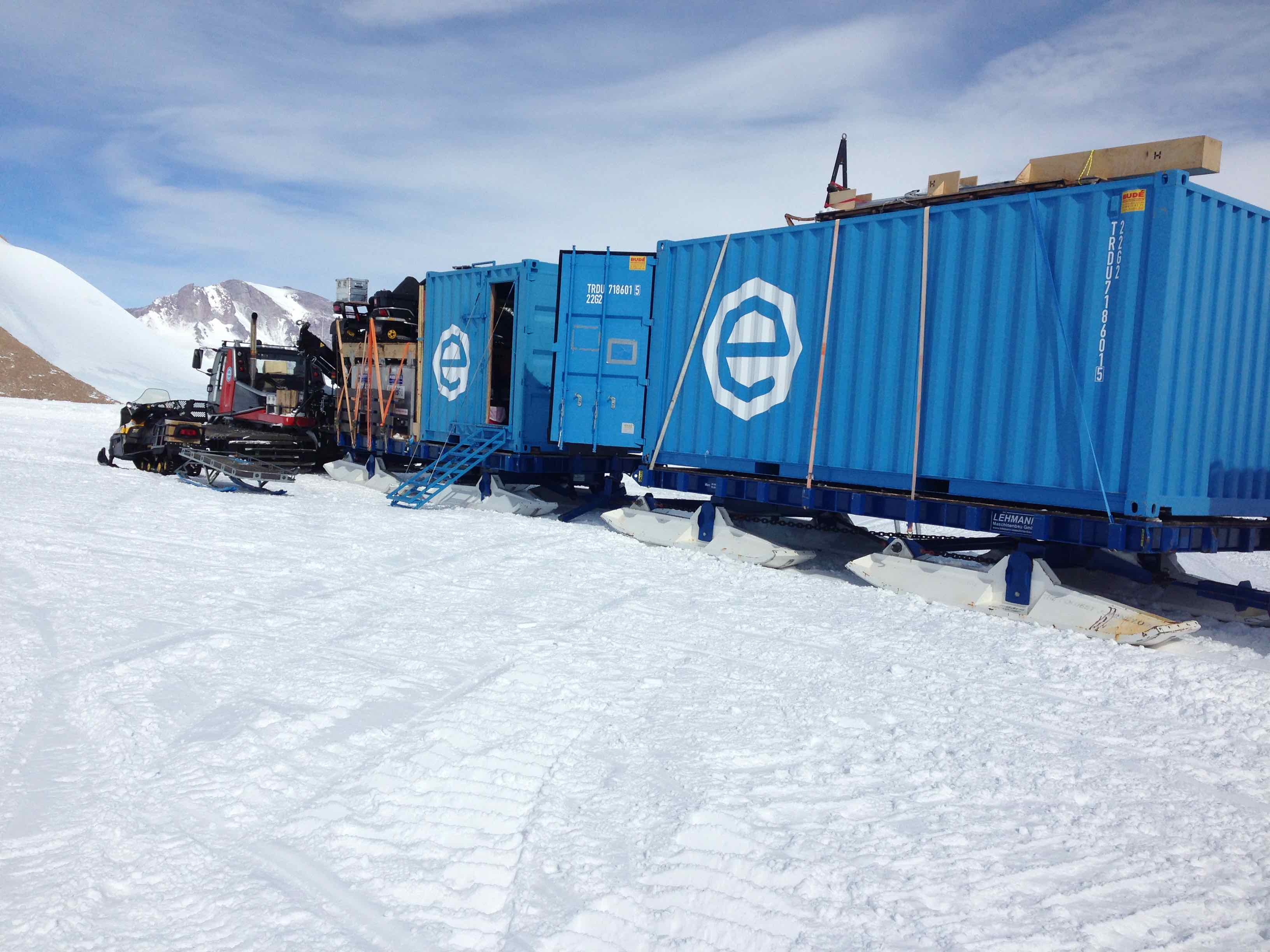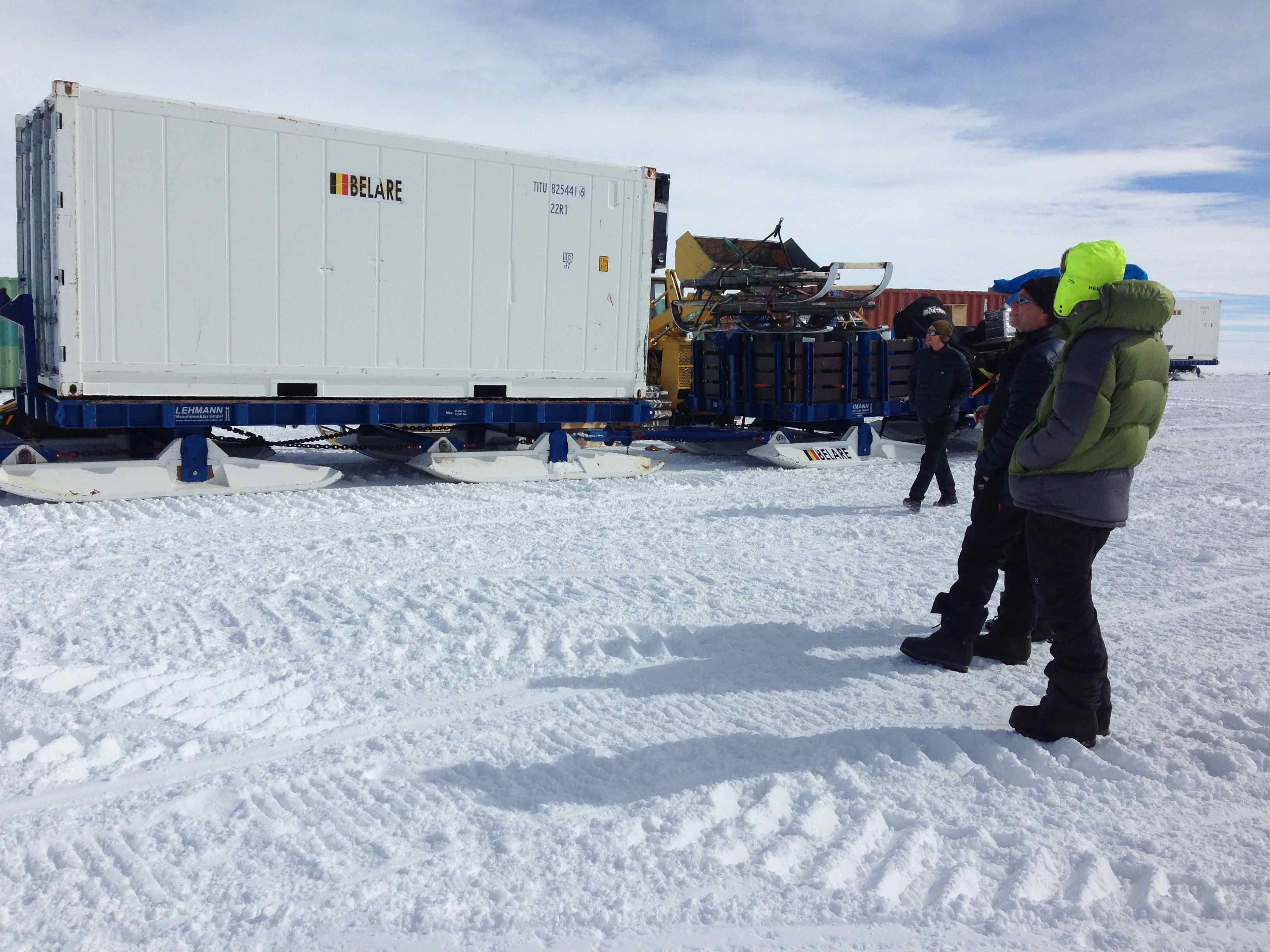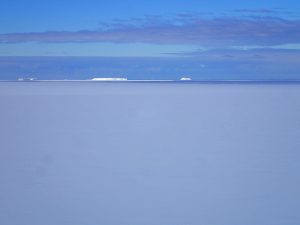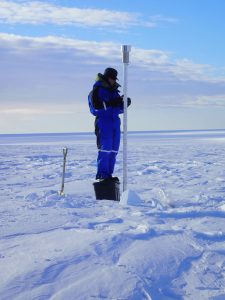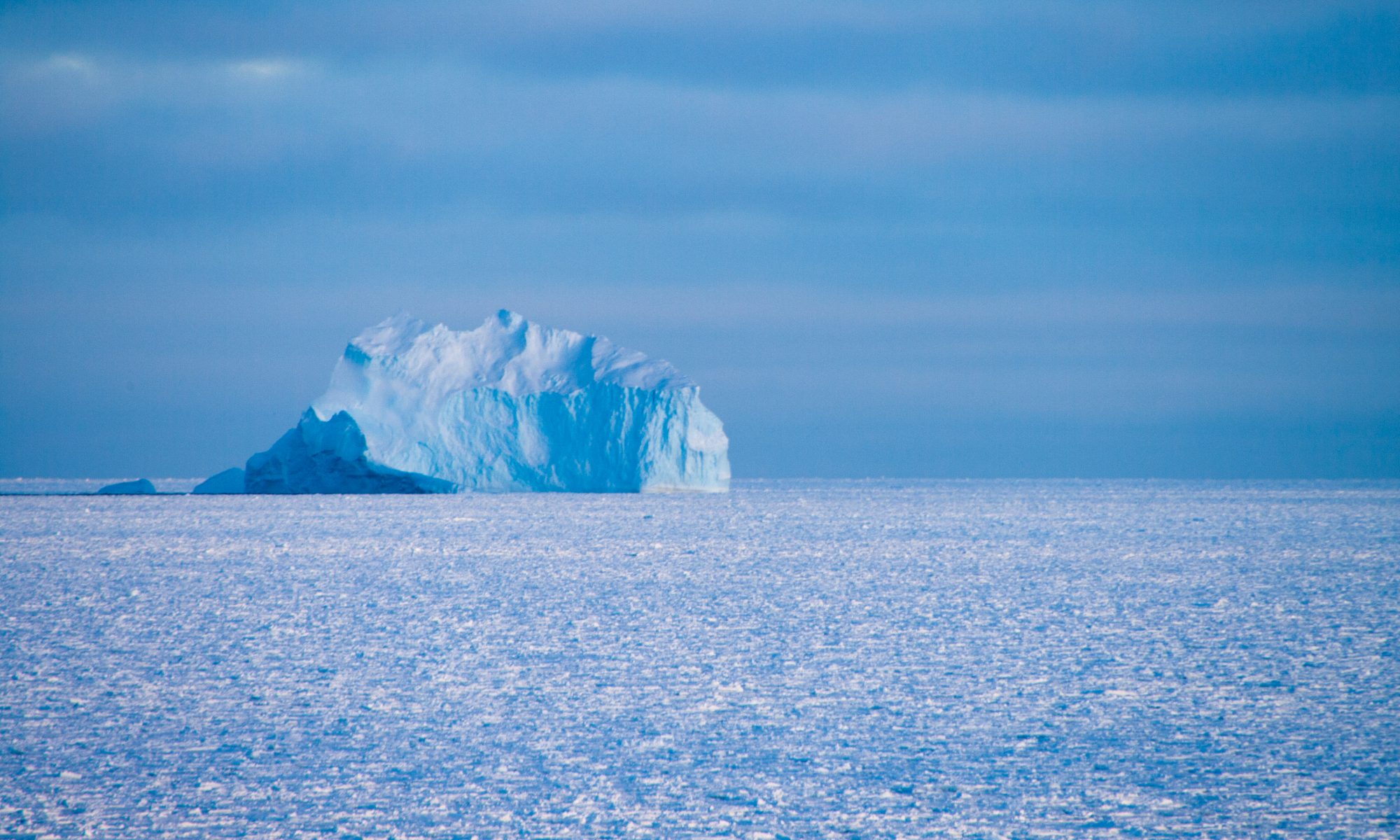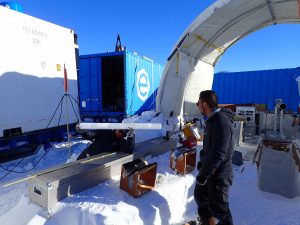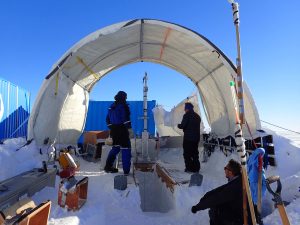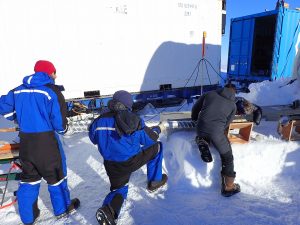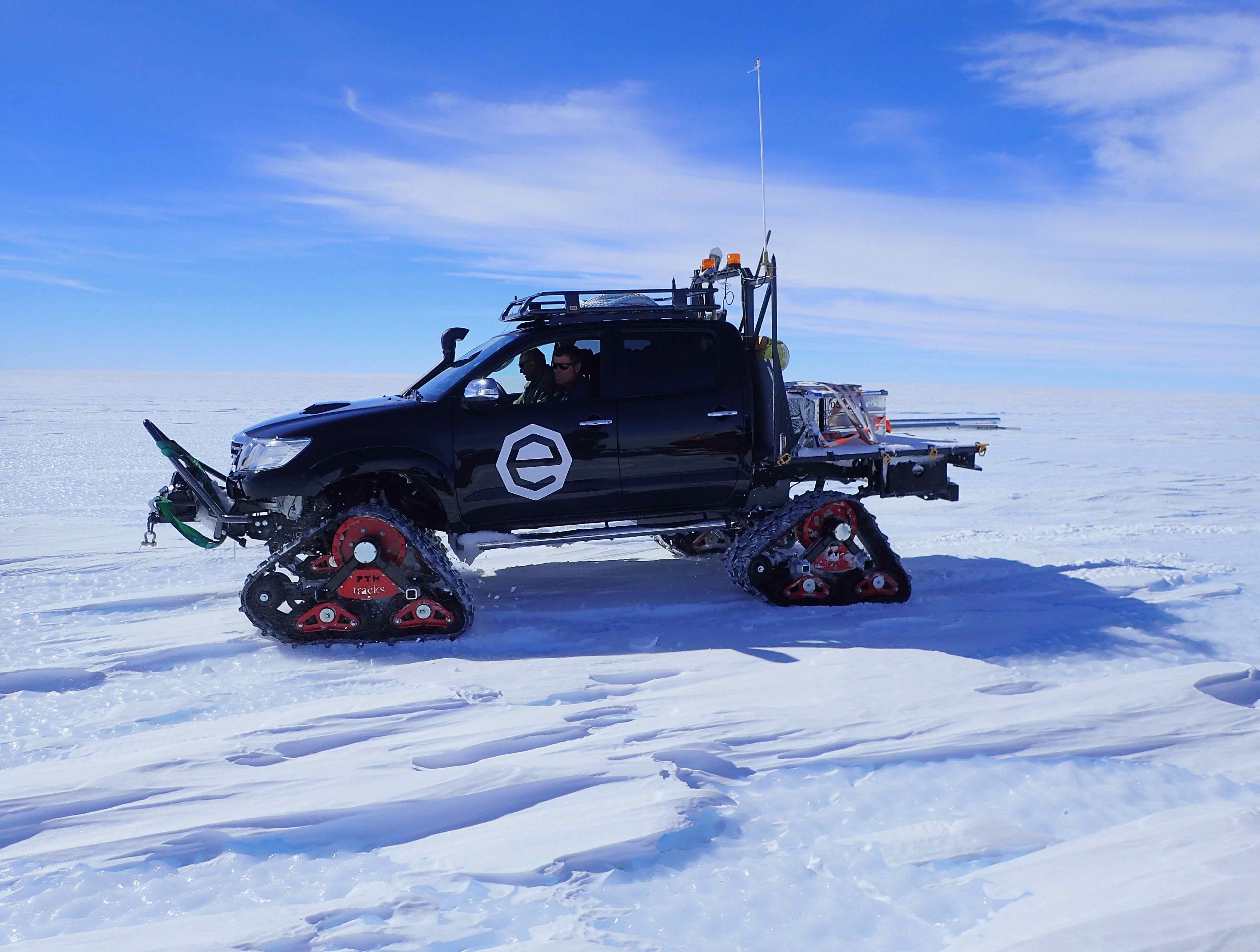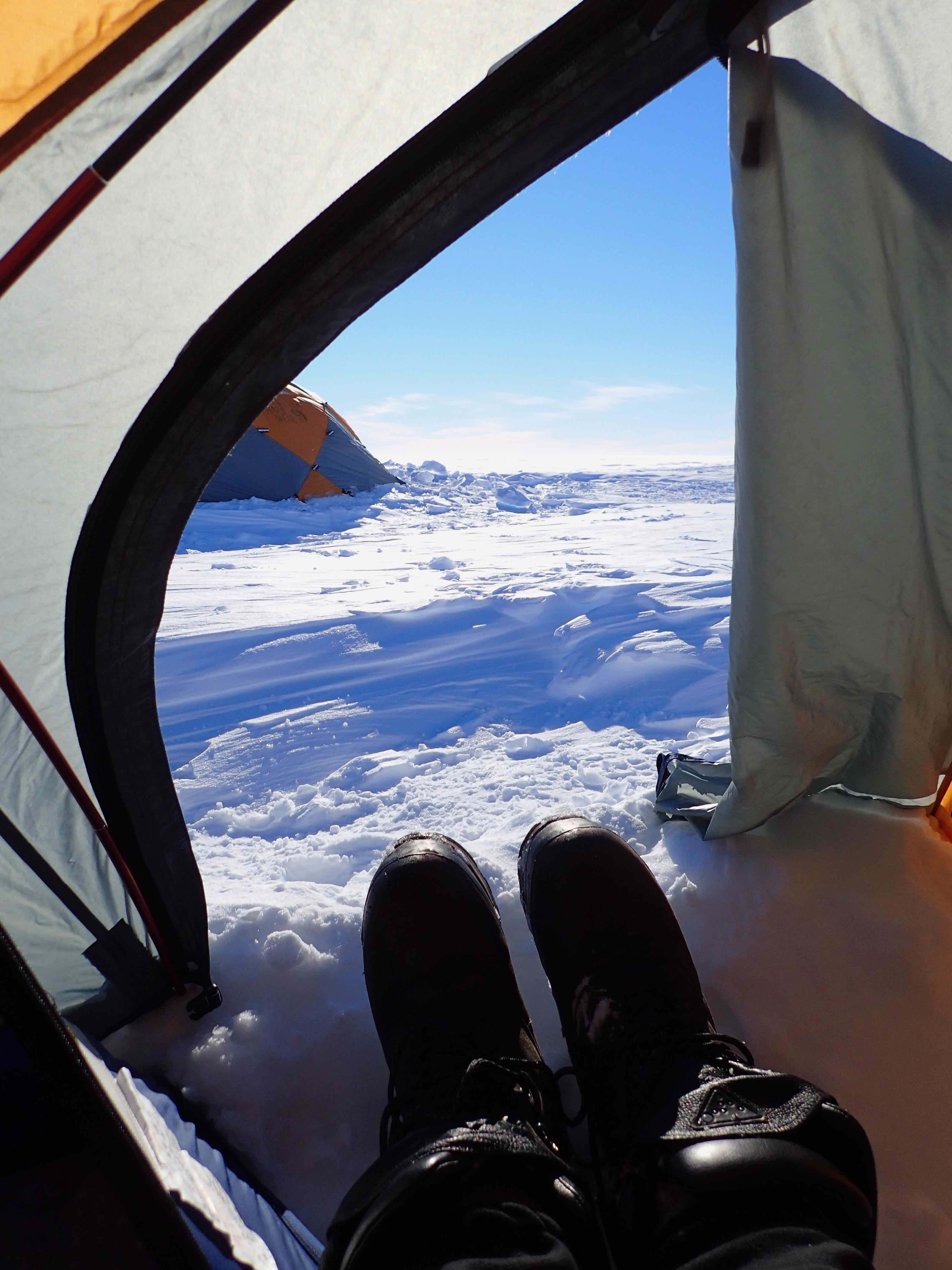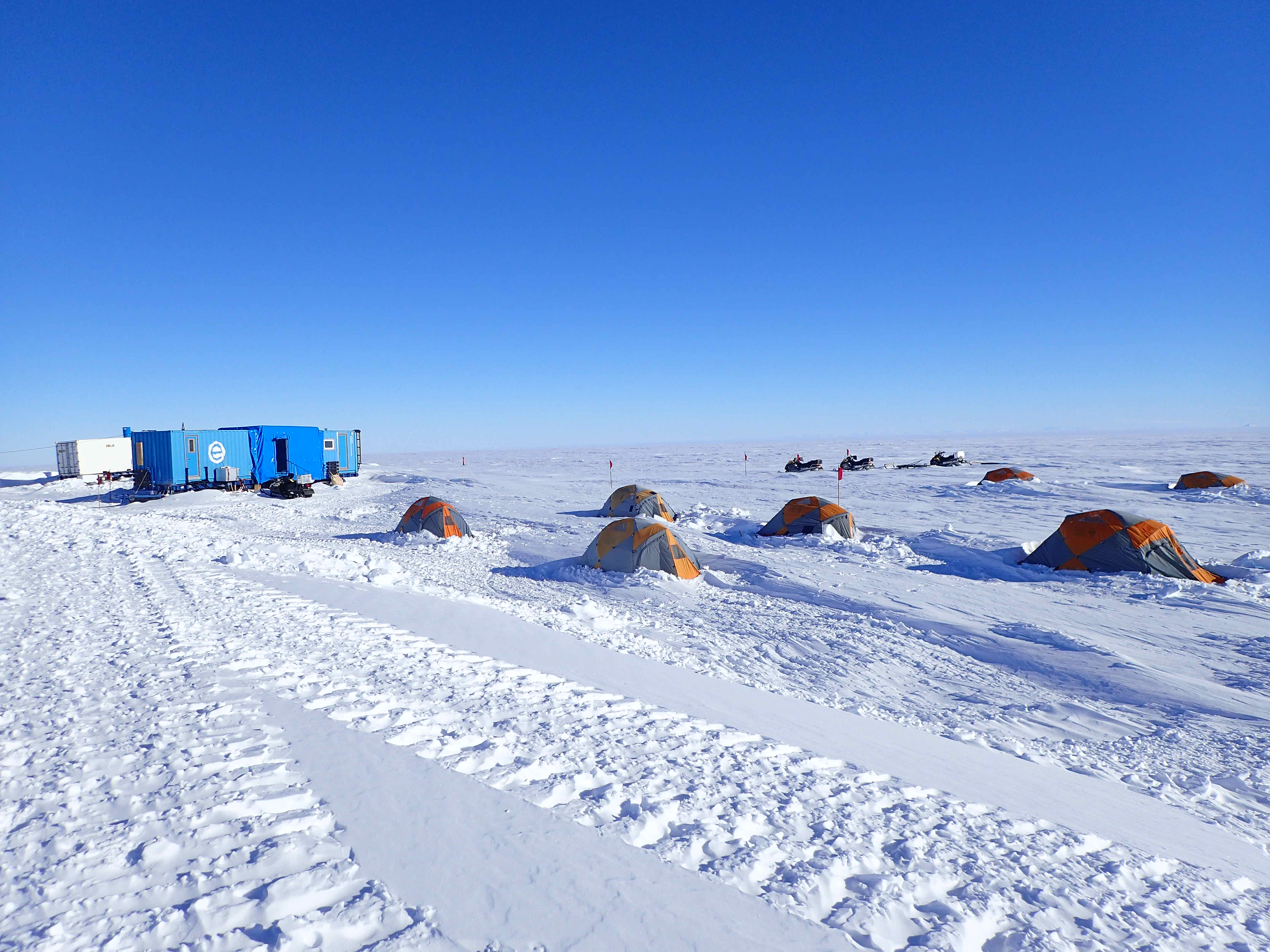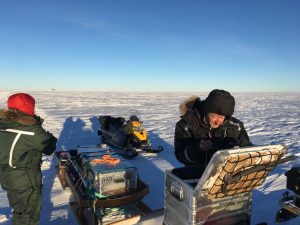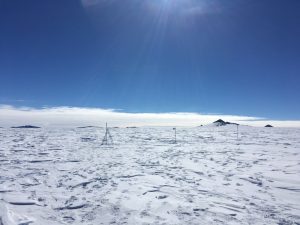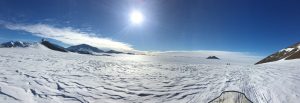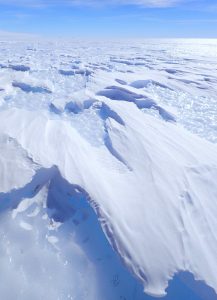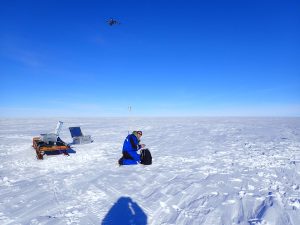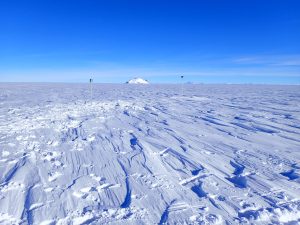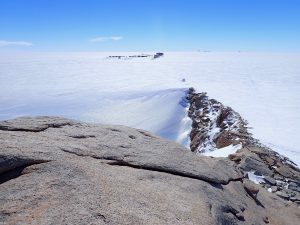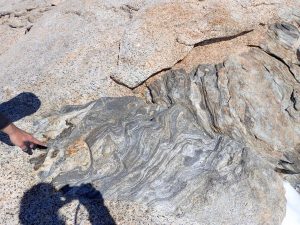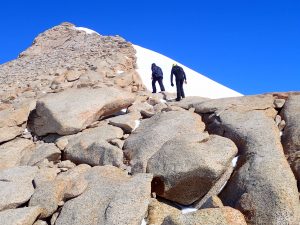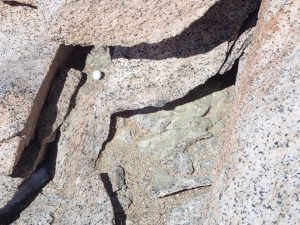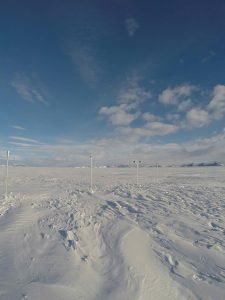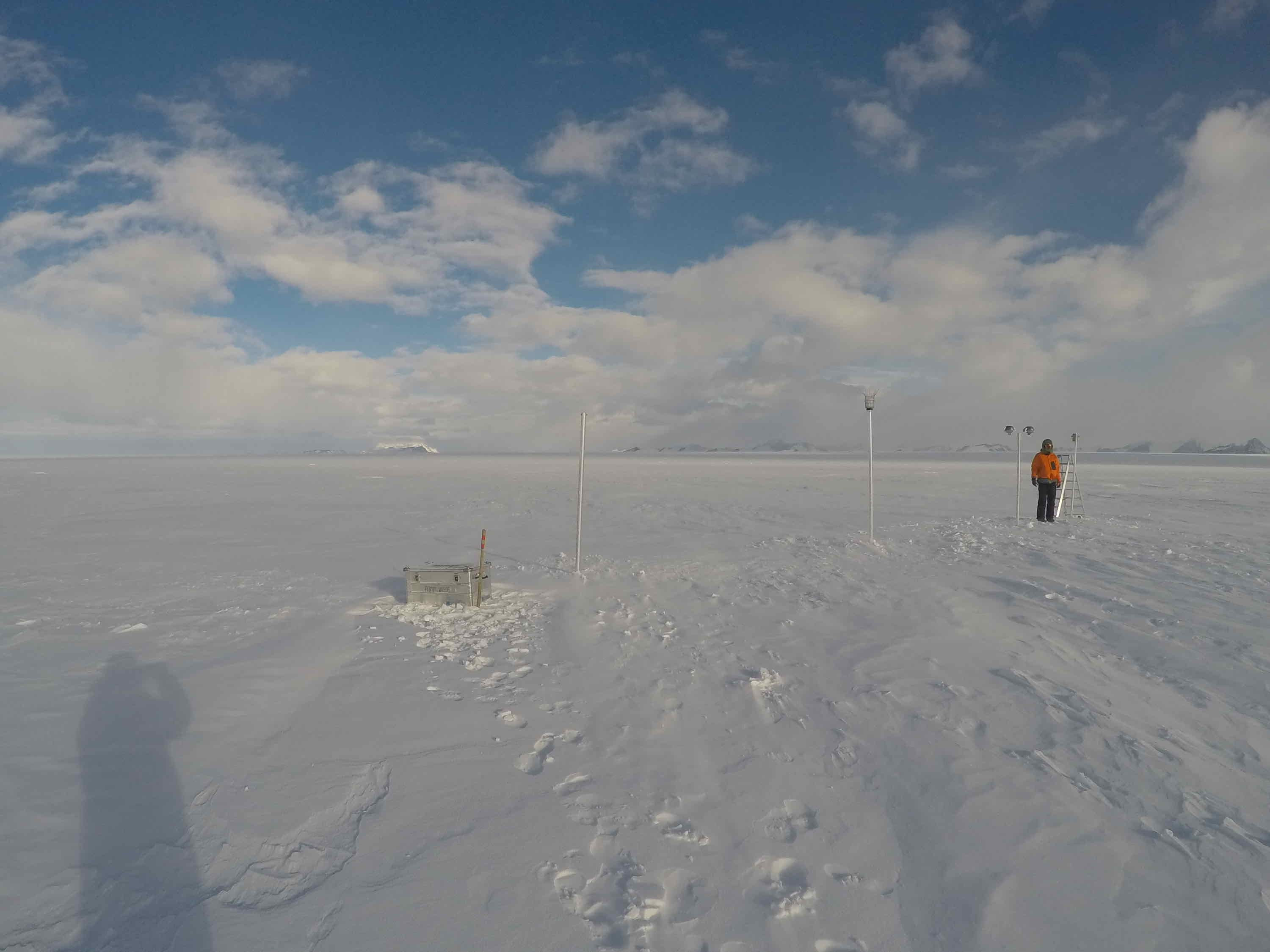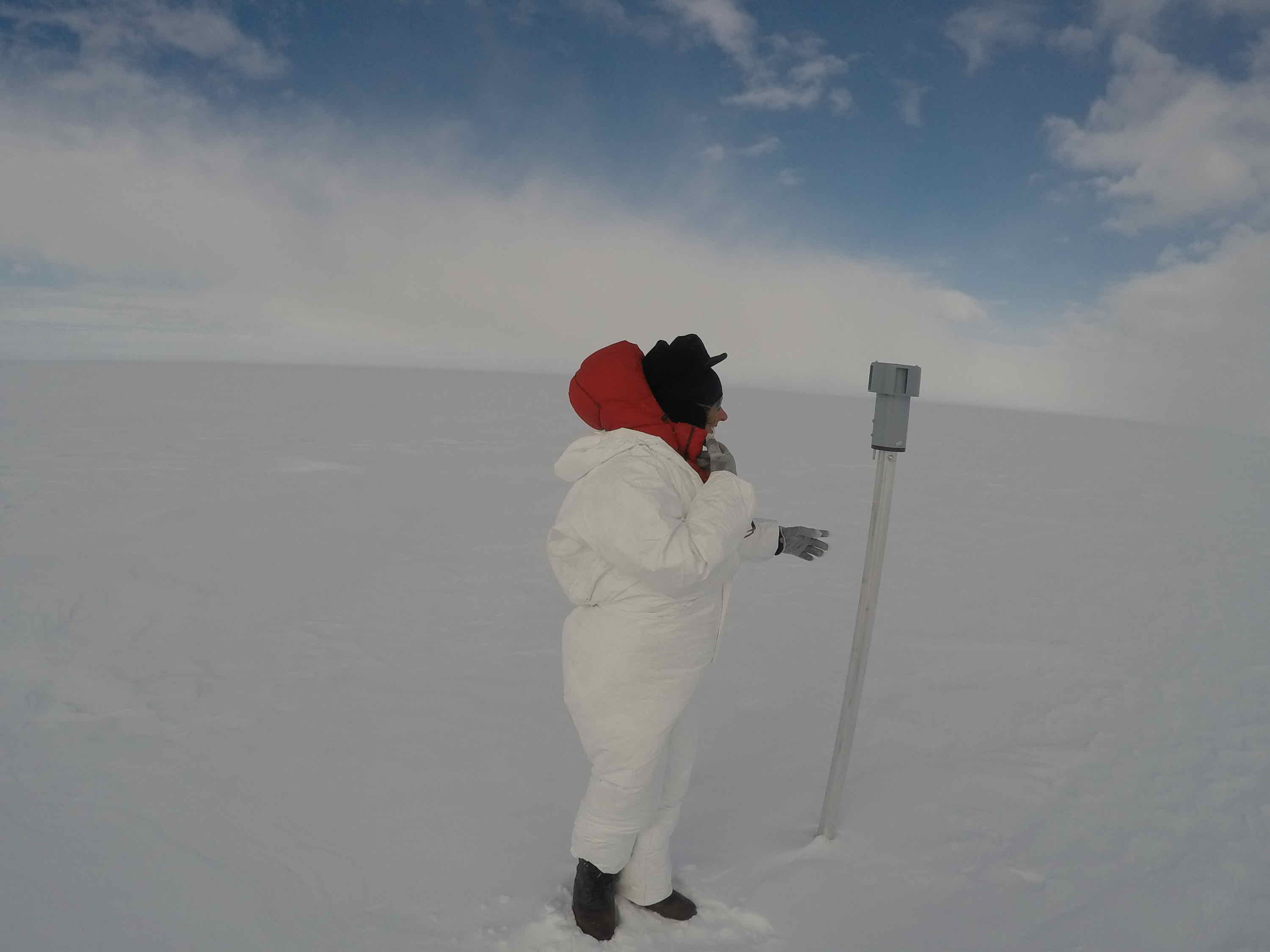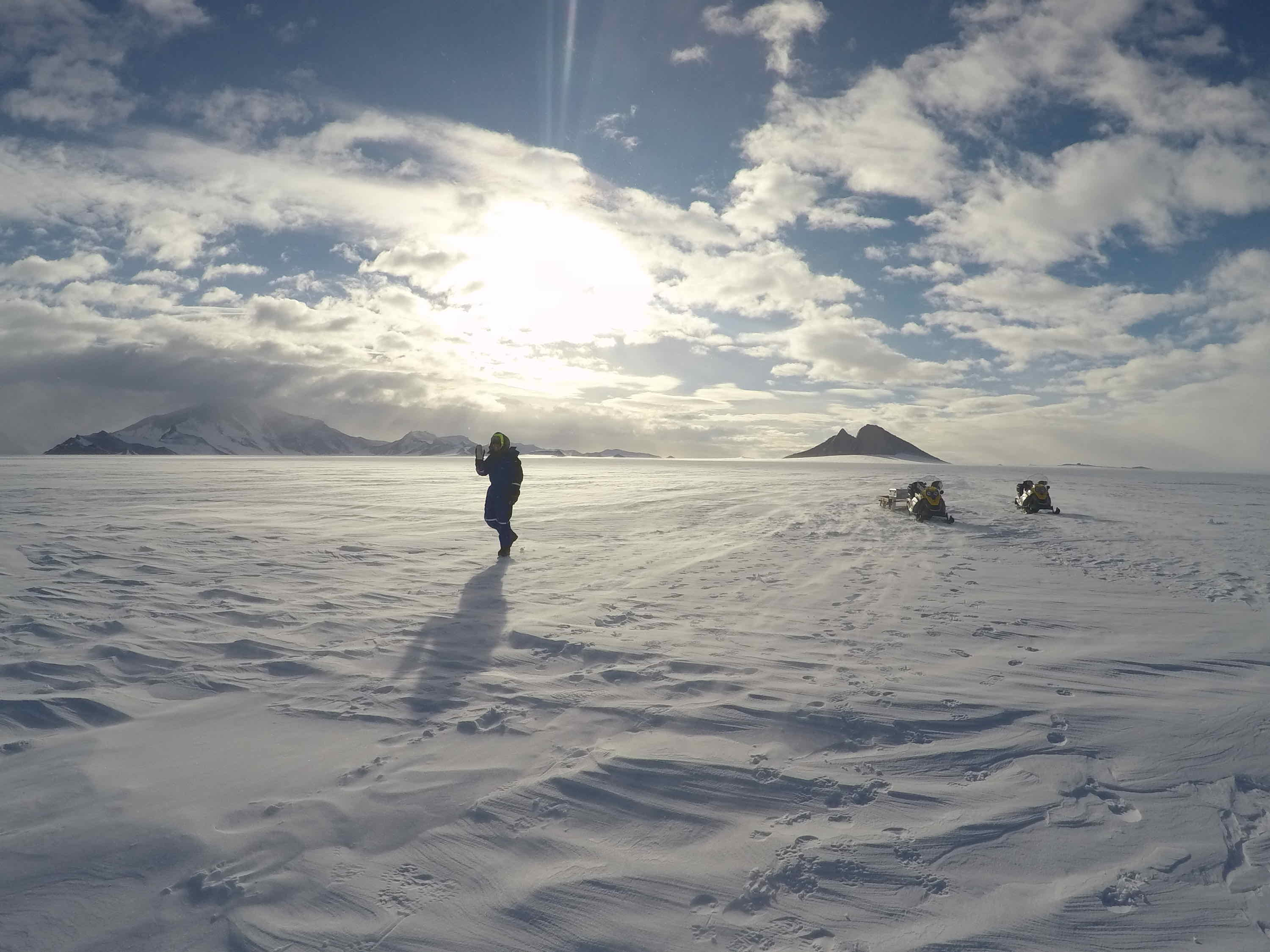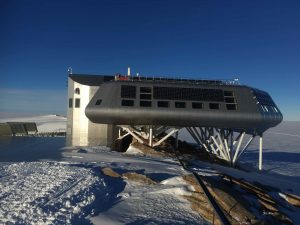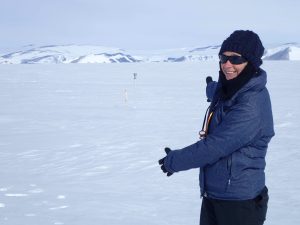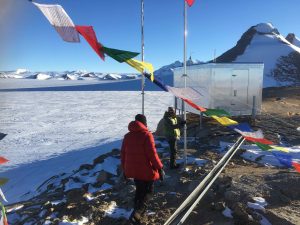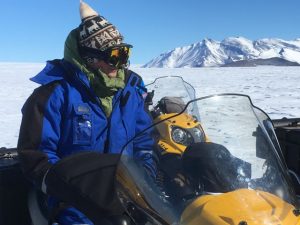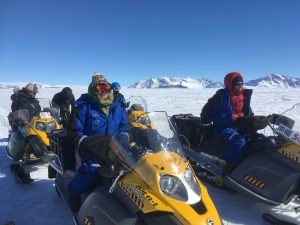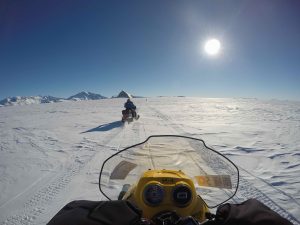Tuesday November 28 is an important day and the station looks like a hive, as the glaciologists will leave at noon (see picture here below, the glaciologist’s train which will cover approximately 200km at 15km/h… Last night, scientists and people from the station worked hard until 1:00 am to prepare the convoy. When the convoy left the station, the tension went down and everybody was happy of their work and wish all the best to the glaciologists.
On our side, Tuesday was dedicated to the preparation of the materials. We expect to install 3 poles for inorganic atmospheric particles analyses, and two for the organic/volatiles component analyses. As those poles are awaited to stay for certainly one year (and we hope more), it is fascinating to see how much the materials you carefully prepared in Belgium are not totally appropriated to the conditions we are facing up to here. The screw behaviors, the contact between two different metals, the timing of the different manipulations, … need to be carefully evaluated taking into account the wind speed, the continuous vibrations induced by the wind, the strong temperature contrast between sunny days and cold/white days. The people from the station (Jack, Olivier, Baptiste, Bernard, …) are ready to help and are especially precious for their advices and spare parts they manage to give us.
From Nadine Mattielli & Christophe Walgraeve
